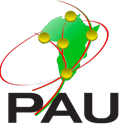MASTER OF ARTS IN CONFERENCE INTERPRETING (PMCI)
Programme Duration
Two years, i.e. 24 months (or four semesters).
Programme Objectives
The Pan African University Master of Arts in Conference Interpreting is a two-year course, which aims to achieve the following objectives:
- Train professional interpreters for the African market and beyond;
- Promote mutual understanding, peaceful coexistence and regional integration in the face of Africa’s crosslinguistic and cultural diversity;
- Promote research and innovation in spoken language translation and conference interpreting within the African context and beyond.
Programme Outcomes
At the end of the degree programmes, graduates shall be able to:
- Serve as high-level, innovative and enterprising professionals in interpreting content for Africa and beyond;
- Interpret content in the relevant languages for better spoken language communication among African people throughout the continent;
- Research and innovate in spoken language translation and conference interpreting for communication throughout the African continent.
Admission Requirements
In order to be eligible for admission to the programme candidates must
- hold a recognised university degree or equivalent (in any subject);
- have an excellent command of their mother tongue (A language) over a wide range of topics and registers;
- have an in-depth knowledge of their working languages (B and C);
- offer at least one of the following language combinations2: A-B or A-B-C;
- have a good overall knowledge of international affairs and be well-informed of the economic, social and cultural background of the countries in which their working languages are used.
- have a good voice-recording tool, a state-of-the-art multimedia computer with good voice and video recording/recognition devices and reliable internet connection.
In addition, candidates shall be expected to have
- good powers of concentration, analysis and synthesis;
- good communication skills;
- a high degree of motivation;
- the ability to work under pressure; and
- a readiness to accept feedback during training both from peers and lecturers.
Admission into the programme is subject to success in an aptitude test which is designed to assess suitability for training in conference interpreting. The test panel shall
- include a majority of professional interpreters and interpreter trainers;
- represent all the languages for which a candidate is to be tested and include at least one assessor with the candidate's A-language; and
- decide by consensus.
One member of the panel shall normally be present throughout to ensure consistency in decision-making. The complete admission test shall include:
- a general knowledge test;
- the oral reproduction (summary or paraphrase) of a short and structured oralised speeches (2-3 minutes) from C and B languages into A and A into B; and
- an interview with the candidate.
Additionally the test may include
- sight translation;
- a brief oral presentation by the candidate on a subject chosen by the panel; and
- a written language test for academic-level proficiency.
2. In analogy to widely accepted standards, professional working languages in translator training are languages of which the trainee has requisite mastery prior to training. In this respect:
Language A is the translator trainee's native language (or any other language strictly equivalent to a native language), into which the translator works from all her or his other languages.
Language B is a language other than the translator trainee’s native language, of which s/he has a very good command and into which s/he works from one or more of her or his other languages.
Language C is a language of which the translator trainee has a complete understanding and from which she or he works.


